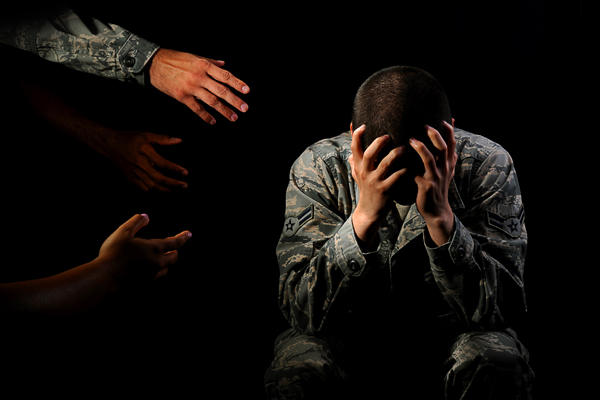The sound of my "mom voice" could make my teenage son twitch all over like a fly-covered racehorse. So I started texting the guy when he turned 14.
I found he was happy to pick up milk on his way home or grab his brother as long as I texted him. He would explain exactly why he got home late or what happened to his chemistry grade as long as I did not talk out loud.
During conflict my son seemed to need the space and distance that texting could provide in order to get his point across. The sooner he felt "heard" via text, the sooner he started talking again. It worked for us.
So I was intrigued when I saw that the new National Suicide and Crisis Lifeline offers assistance via either voice or text support at 988.
In a time where we have more soldier suicides than combat deaths, this service is set up to reach vets in their moment of crisis.
I got to wondering whether the largely male veteran population might be a little like my son. Could veterans in crisis be better served by the space provided by text than by the sound of a human voice or a real in-person human being?
I called the folks at Military Crisis Line to talk it over. Licensed clinical psychologist Kimberley Mullen told me that their whole goal is to lower the barrier for veterans to get help. The research says that men in particular have more negative attitudes toward seeking help and they tend to underutilize existing mental health services. Since 85% of all military members are male, lowering that barrier seems paramount to me.
"Suicide is one of the most difficult things to talk about -- especially for servicemembers and returning veterans," said Mullen. "It is incredibly difficult to take those first steps. With our help, we can make the process easier on them."
But how? While reviewing their data, the team at Veteran's Crisis Line could see that users were browsing the website, but not engaging in an online chat. They knew they had to offer something else to this population.
Why not text? This generation of military veterans was already used to texting. While walking into a VA hospital or making an appointment with a doctor might be overwhelming to a veteran, sending a quick text is pretty easy.
Debra Woodworth, a call responder with 26 years of experience in therapy, says that the most common starter texts she gets from vets are things like "I'm struggling tonight." Or, "I'm really depressed."
She says that, unlike calls, texting tends to be brief and abrupt. Ten minutes can go by without a response.
"Some call in with relationship issues. Others are drunk. We get all kinds," said Woodworth. "It's a slower process at a slower pace."
That slower pace might be especially good for men in crisis. Research by John Gottman demonstrates that men are more susceptible to emotional flooding than women. Men can get emotionally overloaded and feel powerless or that they have no options.
Offering a crisis therapy that gives men a little more time to recover between engagements with a therapist seems kind of brilliant to me.
Military Crisis Line responders are available day or night to talk about whatever has a servicemember struggling -- chronic pain, anxiety, depression, sleeplessness, anger, or even disturbing memories of their service. The service is free to active-duty service members, members of the National Guard and Reserves, veterans and family members. They can start with a text or the anonymous online quiz, then move up the scale of interaction into a phone call or a referral -- if it is necessary.
"We refer hundreds of people to the suicide prevention coordinators at the VA. They do the follow-up. Those are folks on the ground," said Mullen. Military Crisis Line responders also refer users to other services that can help.
"We think of our users as airplanes flying through fog," said Mullen. "We're here to give them directions. We're here to keep them safe."
Keep Up with the Ins and Outs of Military Life
For the latest military news and tips on military family benefits and more, subscribe to Military.com and have the information you need delivered directly to your inbox.




























